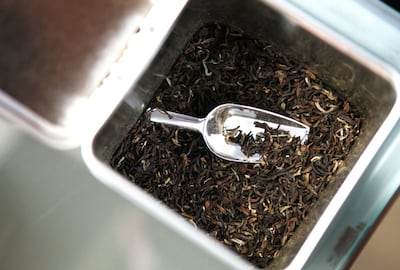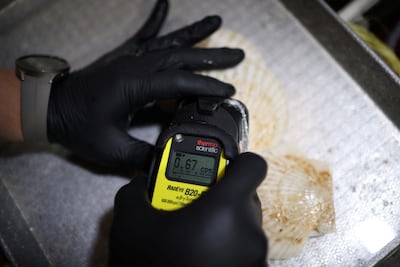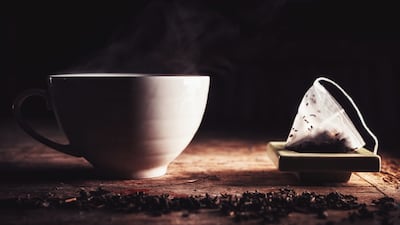Daily consumption of dark tea may help maintain stable blood sugar levels and reduce the risk of type 2 diabetes, a new study suggests.
People who drink dark tea daily have a 53 per cent reduced risk of pre-diabetes and a 47 per cent lower risk of type 2 diabetes, with these statistics consistent even after accounting for factors like age, ethnicity, BMI and lifestyle habits, said the study, presented at the European Association for the Study of Diabetes.
Multiple studies have highlighted the health benefits of tea, including its potential to reduce the risk of cardiovascular diseases. However, the exact mechanisms driving these benefits were unclear.
“Our findings hint at the protective effects of habitual tea drinking on blood sugar management via increased glucose excretion in urine, improved insulin resistance, and thus better control of blood sugar,” said Prof Tongzhi Wu, co-lead author of the joint study from the University of Adelaide and South-East University in China.
Prof Wu told The National that, while the study did not say how many cups of tea someone would need to drink each day to see a benefit, it did find that daily consumption effectively reduced the risk of pre-diabetes and diabetes.
"The production of dark tea involves microbial fermentation, which generally yields a number of bioactive compounds and their derivatives, including alkaloids, free amino acids, polyphenols and polysaccharides," Prof Wu said.

This process produces distinct bioactive compounds, including alkaloids and polyphenols, which exhibit strong antioxidant and anti-inflammatory properties. These compounds can improve insulin sensitivity, optimise the function of pancreatic beta cells and alter gut bacteria composition.
Prof Wu highlighted that the beneficial ingredients in dark tea work similarly to a new group of diabetes drugs, called SGLT2 inhibitors. These drugs are not only effective in managing diabetes but also protect the heart and kidneys.
Testosterone replacement therapy
The conference also heard that testosterone replacement therapy may enhance glycemic control in men with type 2 diabetes for up to two years. The study draws from real-world data, offering insights into the potential benefits of TRT for diabetes and obesity.
Approximately 40 per cent of men diagnosed with type 2 diabetes experience symptomatic testosterone deficiency, which has been associated with an increased risk of death, adverse cardiovascular outcomes, osteoporosis and psychological issues.
TRT has been linked to decreased insulin resistance, improved quality of life, reduced cholesterol, obesity and mortality rates.
Prof Hugh Jones from Barnsley Hospital in the UK, who led the study, expressed concern about the current state of TRT use. He hopes the Association of British Clinical Diabetologists audit will clarify which patients benefit most from the treatment in terms of quality of life, symptoms and in terms of cardiometabolics.
The ABCD audit encompasses data from 34 centres in eight countries with 428 patients, aiming to evaluate the real-world effectiveness and safety of TRT. Results from the audit show a significant decline in HbA1c levels, a measure of average blood sugar over two to three months after TRT treatment.

Low radiation exposure linked to increased diabetes risk
Even low doses of radiation might increase the risk of diabetes, a 10-year study suggests.
Focusing on emergency workers from the Fukushima Daiichi Nuclear Power Plant disaster in 2011, the researchers from the Japanese National Institute of Occupational Safety and Health tracked the health of over 6,000 out of approximately 20,000 responders.
Among the 5,326 male emergency workers with an average age of 46 in the study, 392 developed diabetes between 2012 and 2021.
In-depth analyses revealed that workers exposed to cumulative low-dose radiation between five and nine millisieverts had a 6 per cent increased risk of diabetes. Those exposed to 10-19 millisieverts and 20-49 millisieverts faced 47 per cent and 33 per cent increased risks, respectively.
The millisievert is a measure of the absorption of radiation.
Dr Huan Hu, study lead, emphasised that radiation could harm pancreatic cells crucial for insulin production, which could lead to diabetes. Furthermore, radiation exposure has been linked to increased inflammation, a known factor in insulin resistance.
To put the exposure into context, the average annual radiation exposure in Europe ranges from 2.7 millisieverts in the UK to over seven millisieverts for specific groups in Finland. In contrast, a single chest X-ray delivers roughly 0.1 millisieverts, while a CAT scan of the whole spine emits around 10 millisieverts.
Semaglutide proves effective for long-term diabetes management
The drug semaglutide consistently improves blood sugar control and induces weight loss in adults with type 2 diabetes for up to three years, a study examining 23,442 patients has found.
Prof Avraham Karasik, leading the study at Maccabi Health Services in Israel, confirmed semaglutide's long-term benefits, with patients observing significant reductions in HbA1c levels and weight after six months of treatment.
The patients’ average age was 62, with an average weight of 94.1kg, and a mean HbA1c of 7.6 per cent.
Findings indicated that six months post-treatment initiation, patients on average experienced a 0.77 per cent decrease in HbA1c and lost 4.7kg.
Those new to the Glucagon-like peptide-1 (GLP-1) receptor agonists class, to which semaglutide belongs, saw more substantial reductions compared to those previously on a GLP-1 RA. Patients with higher adherence to the therapy maintained these benefits for up to three years.



